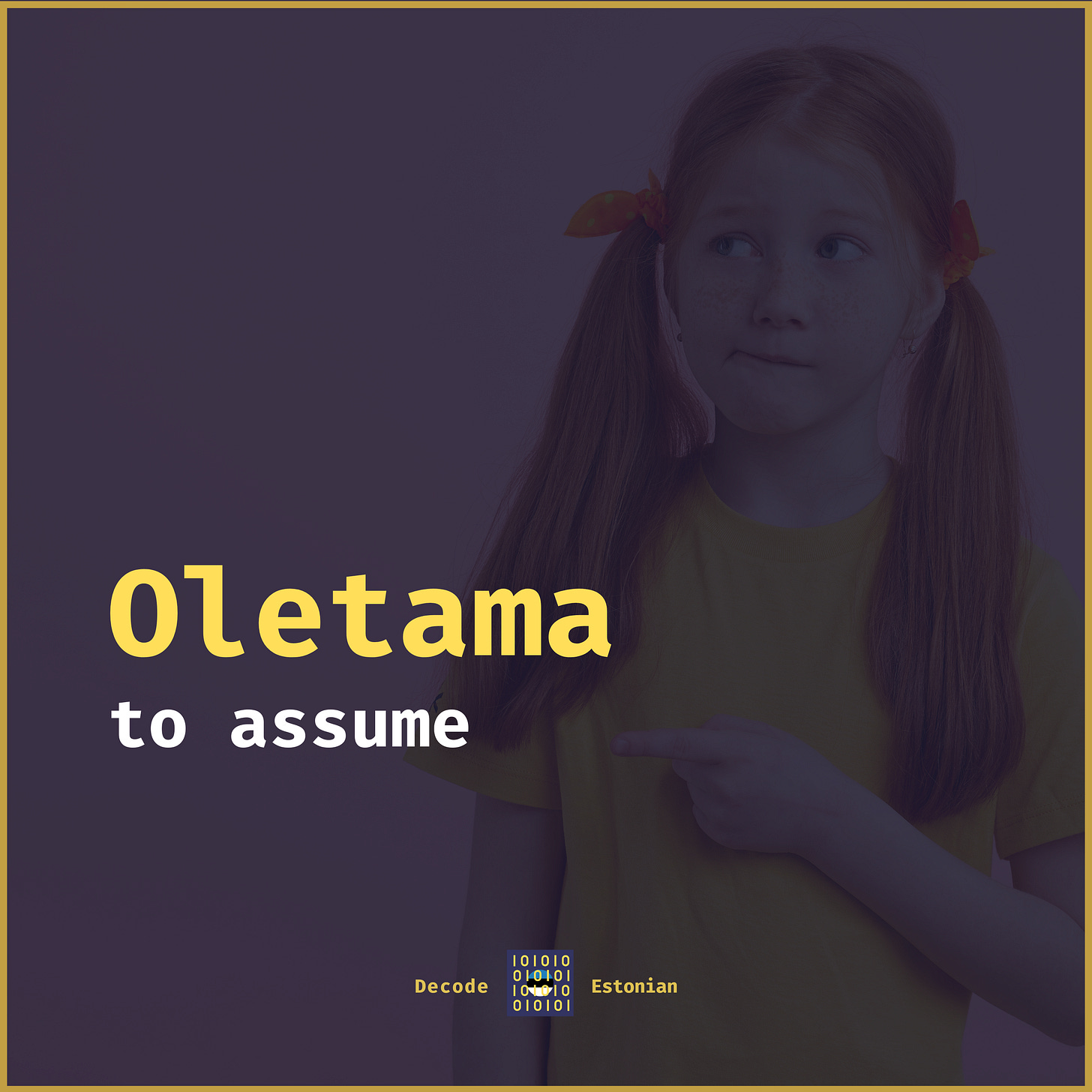Vocab: oletama - to assume
to assume; to suppose; to presume; to say or think something based on insufficient data or experience
Building blocks
ole- → likely derived from the verb olema = to be
-ta- → causative (“make something be X”)
-ma → infinitive ending
It is borrowed from the Finnish olettaa (to assume, to suppose). Literally, it translates to ole- (“to be, exist”) + -ta (causative) — therefore, literally “to cause to exist”.
How to use it
What to remember
What you assume is in the Partitive Case (third base form)
The verb oletama takes “et” to introduce a clause, like “that” in English. It shows what is assumed or supposed.
See the example below ⬇️
Examples
Kadunud raamat on veel leidmata, kuid õpilased oletavad vargust
Literally: “Missing book is yet not-found, but students assume theft”
Idiomatically: “The missing book has not yet been found, but the students assume theft”
Kadunud - Adjective - Nominative Singular: "Lost"
raamat - Noun - Nominative Singular: "book"
on - Verb - 3rd Person Singular, Present Tense: "is"
veel - Adverb - Indeclinable: "yet"
leidmata - Verb leidma (“to find”) + the -mata suffix - negated participle: "not found"
kuid - Conjunction - Indeclinable: "but"
õpilased - Noun - Nominative Plural: "students"
oletavad - Verb - 3rd Person Plural, Present Tense: "assume"
vargust - Noun - Partitive Singular: "theft"Arstid oletavad, et haigus levib kiiresti
Literally: “Doctors assume that disease spreads quickly”
Idiomatically: “Doctors assume that the disease spreads quickly”
Arstid - Noun - Nominative Plural: "Doctors"
oletavad - Verb - 3rd Person Plural, Present Tense: "assume"
et - Conjunction - Indeclinable: "that"
haigus - Noun - Nominative Singular: "disease"
levib - Verb - 3rd Person Singular, Present Tense: "spreads"
kiiresti - Adverb - Indeclinable: "quickly"


